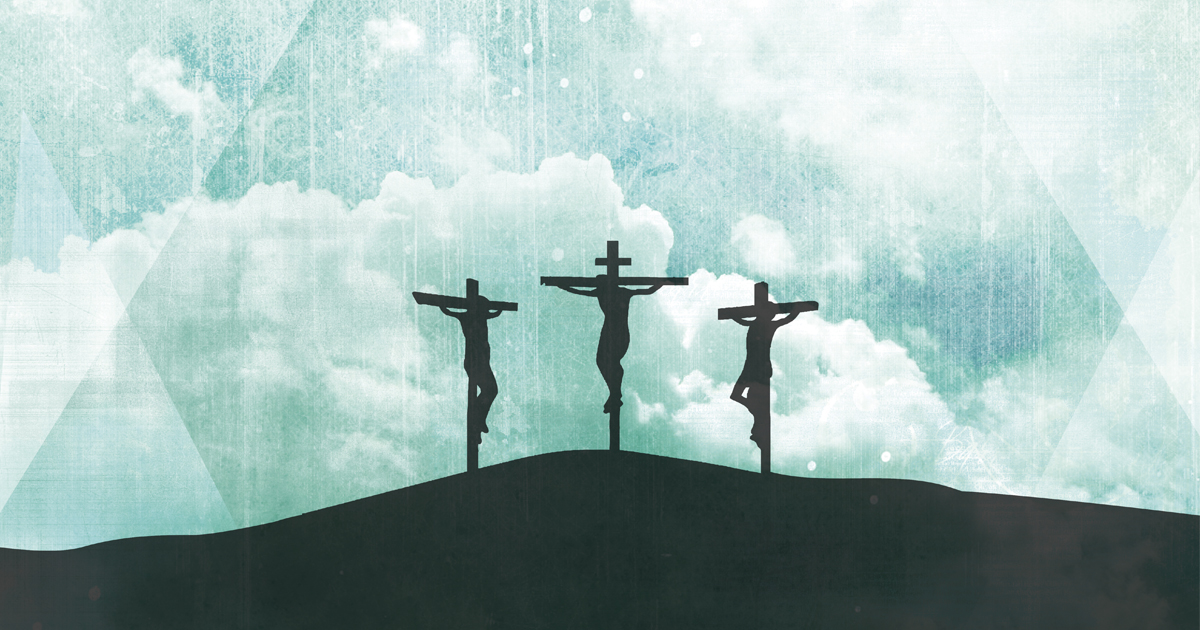In Scripture, the God we worship reveals himself through the CHRIST-centred story. And we find our place in that story as well. Major Lorne Pritchett continues our spiritual life series, exploring R for redemption: the reality and consequence of sin, alongside the audacious hope we’re able to find and experience at the cross.
“But if we walk in the light, as he is in the light, we have fellowship with one another, and the blood of Jesus, his Son, purifies us from all sin. If we claim to be without sin, we deceive ourselves and the truth is not in us. If we confess our sins, he is faithful and just and will forgive us our sins and purify us from all unrighteousness. If we claim we have not sinned, we make him out to be a liar and his word is not in us.”—1 John 1:7-10
One of the greatest hurdles to evangelism is the simplicity of the gospel. To a “you get what you pay for” mindset, the redemptive process appears to be right up there with the promise of health, wealth and success for just three easy payments of $29.99. The concept of such mighty, transformative grace is an assault on our stubborn belief that we must earn our way.
When I began to write this article, at first, I was horrified that it needed to be so brief. After all, I am a preacher! Preachers and theologians, by nature, do more explaining than proclaiming—helping us, by the power of the Holy Spirit, to do a deep dive into the heart and mind of God as revealed in Scripture. I am tempted to try to explain the idea that God set the price for sin, and that the central theme of the cross is as much justice as it is mercy or love. In the economy of God, every person must die in and for their sins unless we can find a sinless one to justly take our penalty. A just God cannot simply ignore the stench of sin.
There—I am trying to explain the unexplainable. Jesus Christ can forgive sins. He is the only one who can go into our past and cleanse it. He is the only one who can hear our confession and say, “Forgiven,” because he legally paid for the right to declare it so.
Are the objections coming? They aren’t new. Paul encountered them nearly every day of his ministry: “God wisely planned that the world would not know him through its own wisdom. It pleased God to use the foolish things we preach to save those who believe. Jews require signs. Greeks look for wisdom. But we preach about Christ and his death on the cross. That is very hard for Jews to accept. And everyone else thinks it’s foolish” (1 Corinthians 1:21-23 NIRV).
Yes, we should probe the depths of this right to the limit of our shallow understanding. But in the end, we will be gobsmacked in the presence of Jesus the Nazarene. What he is willing to do for us in our moment of admission and confession is nothing less than a miracle. If we confess our sins, he is able and willing to forgive us our sins and—get ready for your mind to be blown—invade our lives with the presence and power of his transforming Holy Spirit. Right here. Right now. That is the good news of redemption. I am a sinner, and he is the world’s only Saviour.
When someone asks me what a Christian is, my most frequent answer is “Someone who stands before the cross with a repenting heart.” His redemption includes our moment-by-moment salvation. I spent two years contemplating the story of the dying thief (see Luke 23:39-43). At first, it made me uncomfortable. Then hopeful. And then joyful. William Cowper, the English poet and hymnwriter, nailed it with his poem Praise for the Fountain Opened, which is included in The Song Book of The Salvation Army. The words are my testimony:
There is a fountain filled with blood,
Drawn from Immanuel’s veins;
And sinners plunged beneaththat flood
Lose all their guilty stains
The dying thief rejoiced to see
That fountain in his day;
And there have I, as vile as he,
Washed all my sins away.
(SASB 202)
Major Lorne Pritchett is a retired Salvation Army officer.
This story is from:










Thank you , Major Lorne. I appreciate your ability to take highly abstract concepts and present them in on a pedestrian level and in a digestible form.